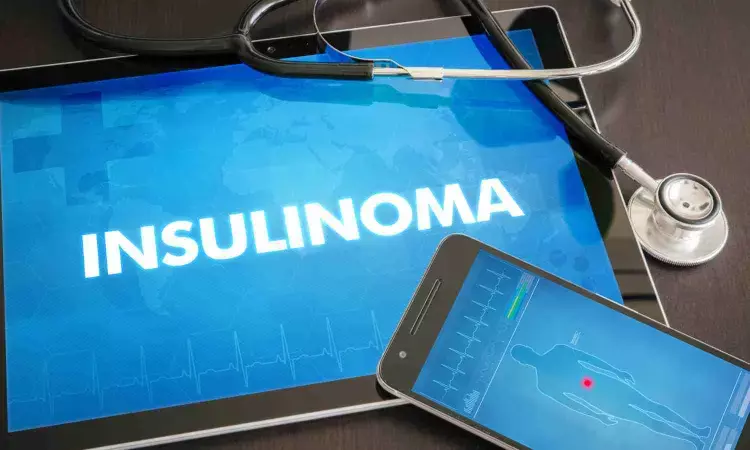- Home
- Medical news & Guidelines
- Anesthesiology
- Cardiology and CTVS
- Critical Care
- Dentistry
- Dermatology
- Diabetes and Endocrinology
- ENT
- Gastroenterology
- Medicine
- Nephrology
- Neurology
- Obstretics-Gynaecology
- Oncology
- Ophthalmology
- Orthopaedics
- Pediatrics-Neonatology
- Psychiatry
- Pulmonology
- Radiology
- Surgery
- Urology
- Laboratory Medicine
- Diet
- Nursing
- Paramedical
- Physiotherapy
- Health news
- Fact Check
- Bone Health Fact Check
- Brain Health Fact Check
- Cancer Related Fact Check
- Child Care Fact Check
- Dental and oral health fact check
- Diabetes and metabolic health fact check
- Diet and Nutrition Fact Check
- Eye and ENT Care Fact Check
- Fitness fact check
- Gut health fact check
- Heart health fact check
- Kidney health fact check
- Medical education fact check
- Men's health fact check
- Respiratory fact check
- Skin and hair care fact check
- Vaccine and Immunization fact check
- Women's health fact check
- AYUSH
- State News
- Andaman and Nicobar Islands
- Andhra Pradesh
- Arunachal Pradesh
- Assam
- Bihar
- Chandigarh
- Chattisgarh
- Dadra and Nagar Haveli
- Daman and Diu
- Delhi
- Goa
- Gujarat
- Haryana
- Himachal Pradesh
- Jammu & Kashmir
- Jharkhand
- Karnataka
- Kerala
- Ladakh
- Lakshadweep
- Madhya Pradesh
- Maharashtra
- Manipur
- Meghalaya
- Mizoram
- Nagaland
- Odisha
- Puducherry
- Punjab
- Rajasthan
- Sikkim
- Tamil Nadu
- Telangana
- Tripura
- Uttar Pradesh
- Uttrakhand
- West Bengal
- Medical Education
- Industry
Radiopharmaceutical therapy controls symptoms and reduces medications in insulinoma patients: Study

Peptide receptor radionuclide therapy (PRRT) is effective for clinical control of symptomatic metastatic insulinomas, according to new research published in the February issue of The Journal of Nuclear Medicine. In the largest study to date of metastatic insulinoma patients treated with PRRT, more than 80 percent of patients had long-lasting symptom control, and nearly 60 percent were able to reduce the use of other drugs to treat the disease.
Metastatic insulinoma is a rare malignant neuroendocrine tumor characterized by inappropriate insulin secretion. This results in life-threatening hypoglycemia, which is often difficult to treat. The severity of symptoms can range from mild to life-threatening hypoglycemic events, leading to coma and death. Most insulinomas are benign, but approximately six percent -develop metastases and are therefore considered malignant.
“Because of the rarity of the disease, the treatment strategies for malignant metastatic disease are ill-defined,” stated Damian Wild, MD, PhD, nuclear medicine physician at University Hospital Basel, in Basel, Switzerland. “There is currently limited data available about the efficacy of PRRT in patients with malignant insulinomas. Our research aimed to evaluate whether PRRT could improve symptoms and if it had an impact on medication needed to control hypoglycemia.”
The retrospective study included 26 patients with malignant insulinomas who were treated with a total of 106 cycles of 90Y-DOTATOC or 177Lu-DOTATOC. A scoring system was used to quantify the severity and frequency of hypoglycemic episodes, and the score before and after PRRT was analyzed. Information on medication needed to control hypoglycemia before and after PRRT was also collected, an overall and progression-free survival was recorded.
PRRT was effective in controlling hypoglycemia in 81 percent of the study population and enabled 58 percent of patients to reduce the use of other drugs to control hypoglycemic episodes, resulting in reduced potential drug side effects. Overall and progression-free survival were 19.7 and 11.7 months, respectively.
“Compared to the effectiveness of other drugs commonly used to control hypoglycemia, the results of PRRT are promising and will likely have an impact on guidelines for the treatment of metastatic insulinoma,” noted Wild. “They also imply that PRRT is indicated at an earlier time point, for example as a first or second line of therapy, for the treatment of metastatic insulinomas.”
Reference:
Liene Friebe, Martin T. Freitag, Martin Braun, Guillaume Nicolas, Andreas Bauman, David Bushnell, Emanuel Christ and Damian Wild, Peptide Receptor Radionuclide Therapy Is Effective for Clinical Control of Symptomatic Metastatic Insulinoma: A Long-Term Retrospective Analysis, Journal of Nuclear Medicine,https://doi.org/10.2967/jnumed.123.265894.
Dr Kamal Kant Kohli-MBBS, DTCD- a chest specialist with more than 30 years of practice and a flair for writing clinical articles, Dr Kamal Kant Kohli joined Medical Dialogues as a Chief Editor of Medical News. Besides writing articles, as an editor, he proofreads and verifies all the medical content published on Medical Dialogues including those coming from journals, studies,medical conferences,guidelines etc. Email: drkohli@medicaldialogues.in. Contact no. 011-43720751


